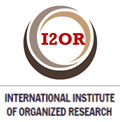Didactic strategy: risk factors, significant learning for students of occupational health sciences. University of Guadalajara, Jalisco, Mexico
Keywords:
significant learning, technical visit, didactic strategy, didactic interactions, learning unit.Abstract
When there is an interaction between what has been learned in the classroom and the new knowledge acquired in a real space, it is said that the student achieves significant learning. In this study, the technical visit is proposed as a didactic strategy for the postgraduate students of the Master's Degree in science Health in the work of the University of Guadalajara Jalisco, Mexico, to recognize and identify the risk factors for the health of the workers in a company through meaningful learning. The design of the technical visit is based on the didactic interaction model that incorporates real-world situations. A structure is provided for technical visits to work centers, including the characterization, planning and development of the visit that culminates with a technical report, which can be used as an integrating product of the learning unit. It is concluded that when the teacher designs didactic strategies that formulate with several techniques or specific activities, which are carried out on the site of the action, these allow the student to make a self-assessment of what was learned in the classroom and what is observed on the site. In addition, the technical visit promotes creativity based on knowledge of current labor legislation to identify risks and recommend good practices in work spaces, motivates students to extend their own knowledge, so it turns out to be an apprenticeship more significant for them.
Downloads
References
Ausubel, NovaK y Hanesian, (2009).Psicología Educativa: Un punto de vista cognoscitivo. 2° Ed.TRILLAS. México. Traducción. Mario Sandoval Pineda. 623 p.Recuperado de
https://edusique.wordpress.com/2011/11/11/psicologia-educativa-un-punto-de-vista- cognoscitivo-de-ausubel/
CUCS. UdG. (2016). Perfil de Egreso. Maestría en Ciencias de la Salud en el Trabajo. Universidad de Guadalajara. Recuperado de
http://www.cucs.udg.mx/posgrados/maestria-en-ciencias-de-la-salud-en-el-trabajo/perfile
DEL, 23.1 (2017).Diccionario de la Lengua Española. Fecha de actualización: diciembre, 2017. Versión electrónica de la 23ª edición. Recuperado de http://dle.rae.es/index.html
Gowin, D. Bob. (1981). Educating. Ithaca, N.Y.: Cornell University Press. 210 p. citado por Marco Antonio. Aprendizaje significativo crítico (2000).
Ibáñez, C. (2007). Un análisis crítico del modelo del triángulo pedagógico. Una propuesta alternativa. Revista Mexicana de Investigación Educativa. Vol 12. Número 032 COMIE. México, pp 435-456.
Navas, J. M. (2015). El proceso enseñanza aprendizaje vinculado al aspecto psicológico (PEA vinculado al aspecto psicológico). Edisique. Recuperado de
https://edusique.wordpress.com/2015/08/24/el-proceso-ensenanza-aprendizaje- vinculado-al-aspecto-psicologico/
Moreira. M.A. (2000). Aprendizaje significativo crítico. Versión revisada y extendida de la conferencia dictada en el III Encuentro Internacional sobre Aprendizaje Significativo. Lisboa (Peniche). Publicada en las
Actas del III Encuentro Internacional sobre Aprendizaje Significativo, pp. 33-45. Recuperado de: https://www.if.ufrgs.br/~moreira/apsigcritesp.pdf
Palmero,M. de la L.(2008). La Teoría del Aprendizaje Significativo en la perspectivade la PsicologíaEducativa. (Centro de Educación a distancia, C.E.A.D.) 1ª. Edición. Ed.Octaedro. Sta. CruzTenerife España. Recuperado de https://es.slideshare.net/wpnoa/libro-la-teora-del-aprendizaje-significativo-en-la- perspectiva-de-la-psicologa-cognitiva
Razo, A. (2015). Tiempo de aprender. El uso y organización del tiempo en las escuelas primarias en México. Colmee México 2015. Segundo congreso latinoamericano de medición y evaluación educacional. Recuperado de
http://www.colmee.mx/public/conferences/1/presentaciones/ponenciasdia3/54Tiempo.p df
Verdejo, P. (Coord.), Encinas, M., Trigos, L. (2012). Estrategias para la evaluación de aprendizajes complejos y competencias. Aseguramiento de la Calidad en la Educación y en el Trabajo, S.C., México. 2 Institute of Education, University of London, United Kingdom. 3 Universidad del Rosario, Colombia. Recuperado de
http://www.innovacesal.org/innova_public_docs01_innova/ic_publicaciones_2012/pubs_i c/pub_03_doc03.pdf
Downloads
Published
How to Cite
Issue
Section
License
Aquellos autores/as que tengan publicaciones con esta revista, aceptan los términos siguientes:- Los autores/as conservarán sus derechos de autor y garantizarán a la revista el derecho de primera publicación de su obra, el cuál estará simultáneamente sujeto a la licencia Creative Commons Reconocimiento-NoComercial-CompartirIgual 4.0 Internacional (CC BY-NC-SA 4.0) Esta licencia permite a otros compartir el trabajo con un reconocimiento de la autoría del trabajo y la publicación inicial en esta revista (componente BY o atribución). Coincidente con la política de Acceso Abierto, no se podrán hacer usos comerciales de los contenidos publicados por esta revista (componente NC). Se permitirán las obras derivadas (remezcla, transformación o creación a partir de la obra original), siempre y cuando sean distribuidas bajo la misma licencia de la obra original (componente SA).
- Los autores/as podrán adoptar otros acuerdos de licencia no exclusiva de distribución de la versión de la obra publicada (p. ej.: depositarla en un archivo telemático institucional o publicarla en un volumen monográfico) siempre que se indique la publicación inicial en esta revista.
- Se permite y recomienda a los autores/as difundir su obra a través de Internet (p. ej.: en archivos telemáticos institucionales o en su página web) antes y durante el proceso de envío, lo cual puede producir intercambios interesantes y aumentar las citas de la obra publicada. (Véase El efecto del acceso abierto).






